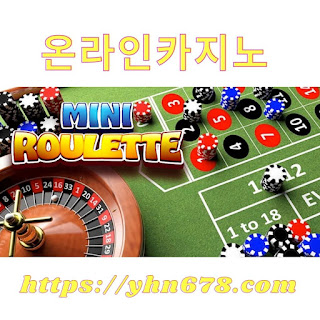The Horror Of Russian Roulette
The Horror Of Russian Roulette
The film portrays the shock of being tossed into fight by unexpectedly cutting from the companions' peaceful hunting excursion to a startling battle scene in a copying town. The three companions are brought together just to be caught by the Vietcong. They in the long run figure out how to get away and the remainder of the film subtleties their post-war injury: Michael feels antagonized, Steven loses his legs and won't see his significant other, and Nick vanishes into Saigon's underground betting where Michael gets back to attempt to save him. Yet, during their time as detainees of war, they had to play a pitiless round of Russian roulette. It's in this specific scene that "The Deer Hunter" worked up contention.
America Was Divided About the Vietnam War
General Pictures
At the hour of its delivery in 1978, the Vietnam War had just been over for a couple of years, and American film had to a great extent stayed away from the subject, exhausted from the broadcast brutality and fights. For certain special cases, including the moderate propaganda "The Green Berets" from western legend John Wayne, there were not many artistic investigations of the Vietnam War on-screen during the mid-1970s. Vietnam was viewed as a fizzled and inconsequential conflict, a humiliating stain on America's tactical history that we would prefer forget. The public hostility encompassing our inclusion in Vietnam brought about veterans being disdained and in a real sense spit on by society; they were made substitutes of the country's uneasiness with the conflict.
"The Deer Hunter" ushered in a realistic development that would give voice to veterans who were experiencing intense injury. Alongside the heartfelt acting "Returning home" and Francis Ford Coppola's fanciful epic "End of the world Now," Michael Cimino's "The Deer Hunter" enhanced veterans' battles and the franticness of the Vietnam War during the last part of the 1970s. Specifically, the scene where Michael saves a deer's life represents the new brand of manliness found in post-Vietnam films: a dismissal of America's fixation on macho brutality and a weak readiness to go up against mental harm. Films during the 1980s would forsake that ethos for more moderate legislative issues. The beefcake heroics in "Rambo" motion pictures, for instance, reflected President Ronald Reagan's endeavor to rehabilitate America as a virile, fruitful force to be reckoned with. 바카라사이트
The Vietnamese Were Sadistic Caricatures
Many blamed "The Deer Hunter" of portraying the Vietnamese adversary in a bigoted way, essentially in the amazing Russian roulette scene. Pauline Kael wrote in The New Yorker (by means of New York Times) that the "Vietcong are treated in the standard inscrutable‐evil Oriental style of the Japanese in the Second World War, motion pictures ... The impression a watcher gets is that assuming we did some terrible things there we did them mercilessly however indifferently; the Vietcong were pitiless and cruel." According to Vanity Fair, Jane Fonda, who was causing ripple effects in her help of the counter conflict development, additionally upbraided the film as "bigot" (regardless of not having seen it).
The Vietnamese are just a little piece of "The Deer Hunter," yet LA Weekly (through New York Times) sees that Cimino paints all of them as "sweat-soaked, insane, horrible and defiled." During the sole battle scene, the North Vietnamese Army annihilates a town and viciously kills a guiltless lady and small kid, then, at that point, Michael broils him to no end with a flamethrower. Cimino's well known Russian roulette scene outlines the foe as jabbering and roaring creatures routinely slapping their detainees and constraining them to play a savage game by holding firearms to their heads. The Vietnamese characters are othered by the utilization of awkward close-ups and absence of subtitles. By the finish of the upsetting grouping, Michael and his companions figure out how to get away and mercilessly kill their ruffians.
In these cases, crowds are welcome to see the Vietnamese as generally malicious. Regardless of many years of "motion pictures with Nazi fiends, Japanese fallen angels and afterward socialist villains," author Hans Koning couldn't remember any "wherein 'the foe' is displayed as so naughty," Bright Lights Film Journal reports. Various pundits blamed Cimino for giving the Vietnamese people group as exaggerations no human emotion. Writer Studs Terkel contends in his book "The Spectator: Talks About Movies and Plays with the People Who Make Them" that the film's bigotry made it "the ideal vehicle to soothe any sensations of culpability we might in any case endure" for the conflict, thus legitimizing America's inclusion in Vietnam to crowds. "The Deer Hunter" reviles the Vietnamese in a misrepresented way to give baffled Americans therapy to what many accepted was a pointless conflict.
The Russian Roulette Scenes Were a Lie
Widespread Pictures
Numerous pundits were angry with Cimino's creation of the Russian roulette game, the film's frightening highlight where our heroes should shoot a gun at their own head in the expectations that there is no slug in the chamber. During the Academy Awards service, 13 individuals from Vietnam Veterans Against the War challenged the scene's error, asserting that it was hostile to the authentic abhorrences that Vietnam fighters went through. As per many conflict reports, there was zero recorded evidence that the Vietcong at any point made prisoners play the lethal game. Many accepted Ciminio was unreasonable for abusing reality, and reprimanded him for assembling "a ridiculous lie," as columnist Peter Arnett wrote in the Los Angeles Times (by means of Vanity Fair). In the mean time, as indicated by Bright Lights Film Journal, Pauline Kael attached the roulette development to the film's inborn bigotry, contending that it was a "representation for the General Westmoreland hypothesis that Asians don't esteem human existence the manner in which we do."
Notwithstanding, Roger Ebert guarded the incorporation of the scene dependent on craftsman merit, expressing, "It is the getting sorted out image of the film: Anything you can accept about the game, about its purposely irregular viciousness, concerning how it contacts the mental soundness of men compelled to play it, will apply to the conflict in general. It is a splendid image on the grounds that, with regards to this story, it offers any philosophical expression about the conflict unnecessary." Just as the deer represents Michael's latent transformation after encountering the hostility of war, the Russian roulette scenes can be deciphered as a figurative portrayal of Vietnam's silly barbarity. As Bright Lights FIlm Journal says, a few watchers accept it addresses the "savage and arbitrary possibility by which war picks it casualties," and how your life is passed on to destiny. 에볼루션게임



Comments
Post a Comment